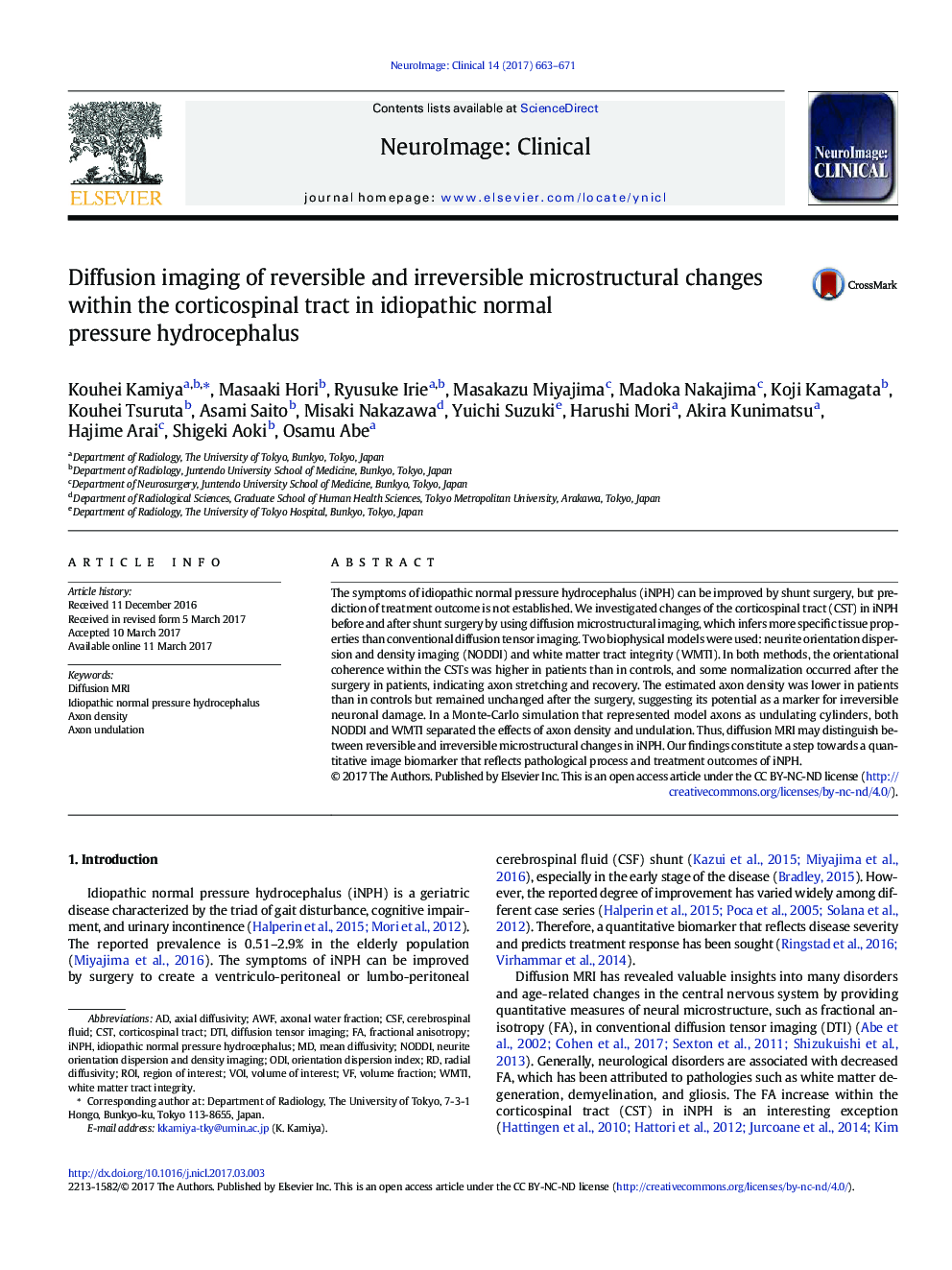| Article ID | Journal | Published Year | Pages | File Type |
|---|---|---|---|---|
| 8688786 | NeuroImage: Clinical | 2017 | 9 Pages |
Abstract
The symptoms of idiopathic normal pressure hydrocephalus (iNPH) can be improved by shunt surgery, but prediction of treatment outcome is not established. We investigated changes of the corticospinal tract (CST) in iNPH before and after shunt surgery by using diffusion microstructural imaging, which infers more specific tissue properties than conventional diffusion tensor imaging. Two biophysical models were used: neurite orientation dispersion and density imaging (NODDI) and white matter tract integrity (WMTI). In both methods, the orientational coherence within the CSTs was higher in patients than in controls, and some normalization occurred after the surgery in patients, indicating axon stretching and recovery. The estimated axon density was lower in patients than in controls but remained unchanged after the surgery, suggesting its potential as a marker for irreversible neuronal damage. In a Monte-Carlo simulation that represented model axons as undulating cylinders, both NODDI and WMTI separated the effects of axon density and undulation. Thus, diffusion MRI may distinguish between reversible and irreversible microstructural changes in iNPH. Our findings constitute a step towards a quantitative image biomarker that reflects pathological process and treatment outcomes of iNPH.
Keywords
ROIAxon densityOrientation dispersion indexNODDIaxonal water fractionAWFiNPHODIDTIVOICStaxial diffusivityradial diffusivitydiffusion tensor imagingDiffusion MRIvolume of interestcorticospinal tractCSFCerebrospinal fluidmean diffusivityregion of interestfractional anisotropyIdiopathic normal pressure hydrocephalusNeurite orientation dispersion and density imagingVolume fraction
Related Topics
Life Sciences
Neuroscience
Biological Psychiatry
Authors
Kouhei Kamiya, Masaaki Hori, Ryusuke Irie, Masakazu Miyajima, Madoka Nakajima, Koji Kamagata, Kouhei Tsuruta, Asami Saito, Misaki Nakazawa, Yuichi Suzuki, Harushi Mori, Akira Kunimatsu, Hajime Arai, Shigeki Aoki, Osamu Abe,
